Spanish Fly Little Dreamer Mean Street Sunday Afternoon In The Park Van Halen
Spanish Fly Album: Van Halen II (1979)
Little Dreamer Album: Van Halen (1978)
Mean Street Album: Fair Warning (1981)
Sunday Afternoon in the Park Album: Fair Warning (1981)
by Van Halen
“Spanish Fly” is the seventh track on Van Halen II, released in March of 1979. It is a flamenco-style acoustic guitar piece, as well as Eddie Van Halen’s second studio-produced solo—considered to be a sort of follow-up to 1978’s hugely influential “Eruption” from Van Halen I.
According to the official Van Halen News Desk, producer Ted Templeman was hosting a New Year’s Eve party in December 1978 when he witnessed Eddie “fooling around” on an acoustic. Surprised that he was just as skilled with nylon strings, he asked Eddie to record something for their sophomore effort. Later, in Guitar World magazine, Eddie recalled the moment:
Ted Templeman walked in and said, ‘You can play acoustic?’ I looked at him, like, ‘What’s the difference? It’s got six strings!’ I ended up coming up with ‘Spanish Fly.’
It was also common for Eddie to incorporate sections of Spanish Fly into his live guitar medleys.
The recording Little Dreamer and this debut album with producer Ted Templeman began August 29, 1977. The tracks were recorded quickly during sessions between August 31 and September 8, 1977. Work on the album ended October 4 with the final mixing of "Little Dreamer" and "Eruption" (titled simply "Guitar Solo" on studio documents). Overall, the album cost approximately $54,000 to produce.
"We didn't have a ton of material," recalled bassist Michael Anthony, "so we basically just took our live show and all the songs we knew and went for it. The whole album only took a couple of weeks. Ted Templeman wanted to make a big, powerful guitar record, and he had all he needed in what Eddie was doing."
The subsequent tour began March 3, 1978 at the Aragon Ballroom in Chicago with the band opening for Journey and Montrose in the United States. They later opened for heavy metal band Black Sabbath in Europe and the United States.
Mean Street David Lee Roth grew up in New Castle, Indiana, where the streets were certainly not mean, but he made his way to Los Angeles, which likely inspired his lyric about toughing it out in a desperate part of town. That's where Van Halen made their rise.
Another Hollywood transplant from Indiana is Axl Rose, whose "Welcome To The Jungle" lyric for Guns N' Roses was inspired by the seedy areas of that town.
"Mean Street" is the first track on Fair Warning, Van Halen's fourth album. It came at a very creative time for the band when they were in a groove, creating an album a year with producer Ted Templeman. The song is quintessential Van Halen, opening with Eddie Van Halen doing some tapping on his fretboard - a sound he innovated. It also has the harmony vocals of Michael Anthony, a monster guitar riff from Eddie, and an interlude where David Lee Roth gets to change gears. It's this section where he evokes the name of the album:
Somebody said "Fair warning"
Lord, strike that poor boy down
"Mean Street" wasn't released as a single but became one of Van Halen's most popular album cuts and one of their live favorites. When they toured in 2012, Wolfgang Van Halen got to do some guitar dueling with his dad.
"Sunday Afternoon In The Park" was no picnic for Eddie Van Halen when it came to its inspiration and sound. According to Eddie's ex-wife Valerie Bertinelli, this near two-minute long instrumental from Van Halen's 1981 album Fair Warning was inspired by the stress of their upcoming wedding, which took place on April 11th, 1981. The following is an excerpt from her 2008 book Losing It – and Gaining My Life Back, One Pound at a Time:
"We only had a small window in which to schedule the wedding. After One Day [her TV series One Day At A Time], I went straight into the TV movie The Princess And The Cabbie, which was shot in San Francisco; then, starting in May, Ed was to tour for the rest of 1981. The stress of planning the wedding got to both of us. I remember Ed snapping, 'God, can't you just leave me alone?'
I don't blame him. Ed told me that I'd inspired the song 'Sunday Afternoon In The Park,' a heavy, grinding instrumental. He said it was us fighting all the time.
'I'm so glad I inspire cheerful songs,' I said."
On "Sunday Afternoon In The Park," Eddie used an Electro-Harmonix Micro-Synthesizer to create the demonic sound of the track. According to Paul Reno, the Micro Synthesizer was developed by electronics engineer and designer David Cockerell. The instrument creates different timbres by modifying the input signal into different circuits. It was inspired by the sound of the 1970s analog synthesizers like Moog, Arp, and Oberheim. The first Micro Synth was released in 1979; along with Eddie Van Halen, it was used by John Frusciante (Red Hot Chili Peppers), John Mayer, James Shaffer (Korn), Kim Gordon (Sonic Youth) and Matthew Bellamy (Muse).
While Sunday Afternoon in the Park wasn't the first time Eddie used keyboards on a Van Halen song (1980's "Everybody Wants Some!!" being the first), it's one of the few from the band's pre-synthesizer-heavy 1984 album days. Back then the inclusion of keyboards on Van Halen music was not at all welcomed by Eddie's bandmate David Lee Roth and producer Ted Templeman. They preferred he stay focused primarily on playing the guitar since, after all, he was known as a "Guitar God." As a result, Eddie became increasingly frustrated and even considered quitting the band because he couldn't express himself creatively. His angst would ultimately be injected straight into Fair Warning, the band's darkest and most aggressive-sounding album. Eddie did, however, manage to get some synthesizers on the record. He and engineer Donn Landee would wait until the band and producer left the studio to record music.
It was around the time "Sunday Afternoon In The Park" was written that Eddie came up with the keyboard riff he eventually used on the band's number one single "Jump." By the time that song was recorded, however, Eddie had built his very own studio he called 5150 Studios. It's with that creative leverage he would go on to complete "Jump" and create the synthesizer riff behind another hit single from the band's forthcoming 1984 album: "I'll Wait."
Van Halen brought this Roth-era song back during the Sammy Hagar era during the 1991-1992 For Unlawful Carnal Knowledge Tour, where it was included in Michael Anthony's bass solo.
-
 35:12
35:12
Island Hopper TV
1 day agoFull Costa Rica Travel Guide 2024
47.4K32 -
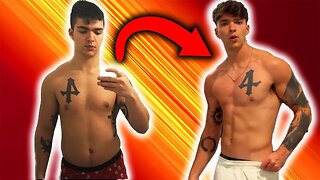 4:43
4:43
ParisDemers
1 day agoThis Diet Hack Changed My Life! (How To Get Ripped FAST!)
60.3K28 -
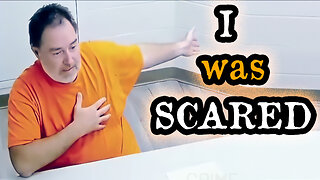 46:57
46:57
Crime Circus
1 day agoApple River ST*BBING!! Stand Your Ground Interrogation of Man in Wisconsin
71.1K45 -
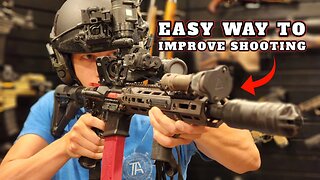 9:39
9:39
Tactical Advisor
1 day agoHow To Improve Your Shooting For FREE! Mantis Blackbeard X
86.6K14 -
 1:00:59
1:00:59
Squaring The Circle w/ Randall Carlson
1 day ago#007 The Real Climate Crisis Noone Is Talking About and Mount Tambora Pt 2
91K27 -
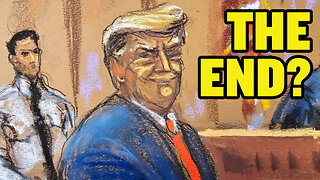 13:52
13:52
America Uncovered
1 day agoEveryone is WRONG About Trump's Guilty Verdict
70.1K124 -
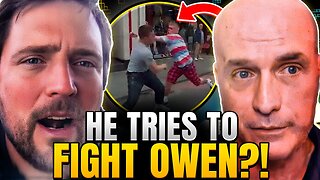 13:10
13:10
Censored TV
1 day agoThe Owen Benjamin vs Jim Goad debate was WILD
71.3K52 -
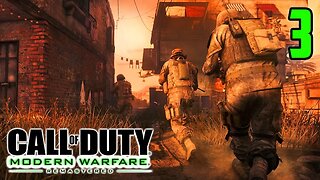 25:27
25:27
Degenerate Plays
22 hours agoThe Microtransaction Master - Call Of Duty Modern Warfare Remastered : Part 3
66.6K5 -
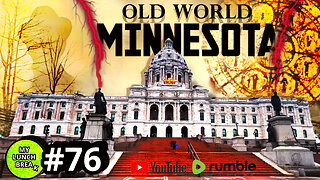 21:03
21:03
MYLUNCHBREAK CHANNEL PAGE
1 day agoOld World Minnesota?
69.6K38 -
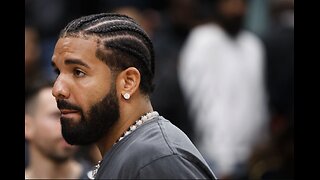 5:49:05
5:49:05
Akademiks
1 day agoDrake Next Move - Whats next?? Did Lil Baby Listen to Me? Diddy and Family Preparing for Indictment?
127K59